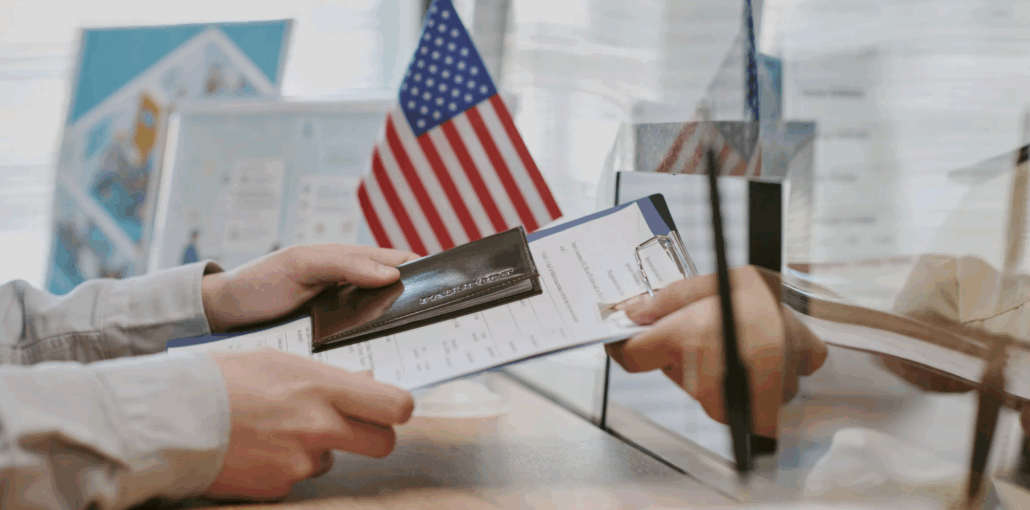
In September 2025, the Trump administration issued a proclamation adding a one-time $100,000 supplemental fee to new H-1B visa petitions. This represents a dramatic shift in how the H-1B program is funded and has sparked confusion, concern, and legal scrutiny. Under the proclamation, any new H-1B petition filed after 12:01 a.m. EST on September 21, 2025 is subject to the additional charge.
The administration’s rationale is framed around discouraging abuse of the H-1B program and “putting American workers first.” In practice, the new fee would drastically increase the cost to employers sponsoring foreign skilled workers. Some firms and advocacy groups have already warned that it could chill hiring of noncitizen professionals, particularly by smaller employers who lack financial flexibility.
While the White House and agencies quickly released clarifications suggesting the fee only applies to new petitions (not renewals or existing H-1B holders), many immigration attorneys say the proclamations’ language and implementing memos leave critical questions unanswered.
What Immigration Attorneys Are Saying
Surge in Demand for Counsel
Many firms report an immediate uptick in inquiries from both employers and foreign workers seeking clarity. As one immigration practice leader told The American Lawyer, the hard part is not just interpreting the proclamation but advising clients in a rapidly shifting environment. Mayer Brown
The Fee Is Likely “Unaffordable” for Many Employers
Several lawyers warn that the $100,000 fee is excessively burdensome for businesses, especially startups, small firms, rural hospitals, and underfunded institutions. One managing partner in Houston suggested that the steep cost might deter many employers from sponsoring foreign talent at all. CBS News+1
Legal Challenges Are Expected
Because the H-1B program is governed by statute enacted by Congress, some attorneys believe that the executive branch’s attempt to impose a supplemental fee may be beyond its authority. Several commentators have flagged the potential constitutional and administrative law questions that will likely lead to litigation. American Immigration Council+2American Immigration Council+2
Hospitals, Rural Areas, and Physicians Are Especially Vulnerable
Particularly concerning is the impact on health care, where international medical graduates often rely on H-1B sponsorship to remain in the U.S. The fee could jeopardize recruitment in medically underserved areas. Some attorneys expect efforts to secure National Interest Exceptions (NIEs) for physicians, though those exceptions are discretionary and uncertain.
Key Uncertainties & Gray Areas
Even with the clarifications, many critical questions remain unresolved. Below are some of the major ambiguities that attorneys are grappling with:
1. Who exactly pays the fee?
While past H-1B fees have been borne by employers, the proclamation does not explicitly assign responsibility for this new supplemental charge. Immigration attorneys caution that shifting that cost to employees could run afoul of wage rules. CDF Labor Law+1
2. How does this affect renewals, change of employer, or extension petitions?
Though the White House says current H-1B holders and renewals are exempt, some attorneys fear that if a worker travels abroad and re-enters under a new petition, they might be swept in. Others worry that changes of employer or extensions filed after the effective date could trigger the fee. CDF Labor Law+3CBS News+3American Immigration Council+3
3. What about those already outside the U.S. with approved H-1B petitions?
The policy might affect foreign nationals with approved H-1B petitions who haven’t yet obtained visas or entered the U.S. Some interpret the rule as requiring the new fee before they can enter under H-1B status. American Immigration Council+2Employment Law Worldview+2
4. How will the national interest exception (NIE) work?
The proclamation allows exemptions in “the national interest,” but gives little concrete guidance on who qualifies, how to apply, or which industries will receive carve-outs. Health care is often cited as a candidate for an exemption, but until DHS provides direction, the NIE remains speculative. Holland & Knight+2CDF Labor Law+2
5. When and how will the fee be collected?
It’s unclear whether the $100,000 will be collected at the time of filing the petition, at visa issuance, or at the port of entry. Because the H-1B forms currently have no mechanism to handle such a large supplemental amount, how it will be integrated into the process is still being debated. CDF Labor Law+2Employment Law Worldview+2
What Employers and Workers Should Do Now
Given the uncertainty and high stakes, both employers and H-1B workers should take a cautious, proactive approach. Below are some suggested steps, based on attorney commentary:
- Delay nonessential travel: Some attorneys are advising current H-1B holders to avoid leaving the U.S. until further clarity emerges, to avoid complications if re-entry becomes tied to new petitions. CBS News
- Use legal counsel: Employers should consult immigration attorneys immediately to review existing sponsorship plans, contract terms, and budget forecasts in light of the new fee.
- Explore alternative visa categories: In some cases, L-1, O, TN, or other visa categories may be more viable, especially if the $100,000 supplemental fee makes H-1B prohibitive.
- Prepare for NIE arguments: Healthcare institutions, research labs, or projects critical to national interest should gather evidence now (unmet needs, scarcity of U.S. workers, public benefit) to support potential exemption requests.
- Track litigation and updates closely: Because the policy is likely to be challenged in court and agency rules may change, it’s important to monitor updates and adjust strategies accordingly.
Conclusion & Call to Action
The new $100,000 H-1B fee marks one of the most significant changes to the H-1B program in decades. While initial clarifications suggest it will apply only to new petitions filed after September 21, 2025 and not to renewals or existing H-1B holders, the policy’s ambiguous language leaves many high-risk scenarios unresolved. Immigration attorneys view this as a legal minefield: questions about fee payor, whether extensions or employer changes are covered, and how the national interest exception will function remain to be answered.
For many companies, especially smaller firms, the fee could shift the calculus entirely on whether to sponsor foreign talent. For foreign workers, uncertainty looms about travel, re-entry, and long-term career prospects. At Ranchod Law Group, when immigration policy changes with such magnitude, we believe it is our duty to help clients interpret the changes, plan ahead, and reduce risk.
If you or your organization are affected by the new H-1B fee changes, do not wait. Contact Ranchod Law Group immediately for a strategy session. We can help you understand how the ruling applies to your specific situation, evaluate alternative visa options, prepare for potential exemptions, and monitor litigation or regulatory developments that may reshape the landscape.
